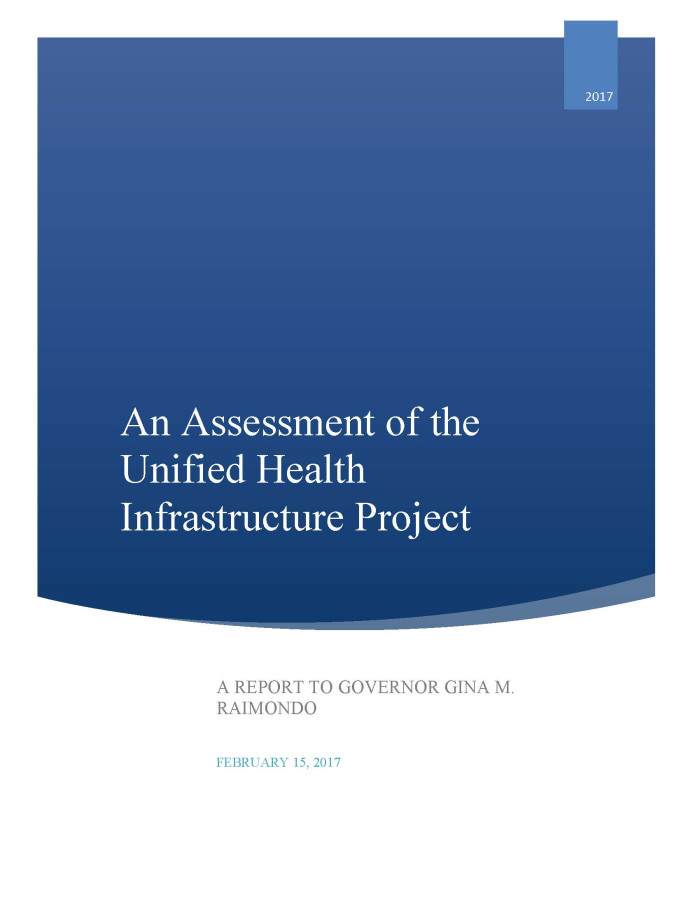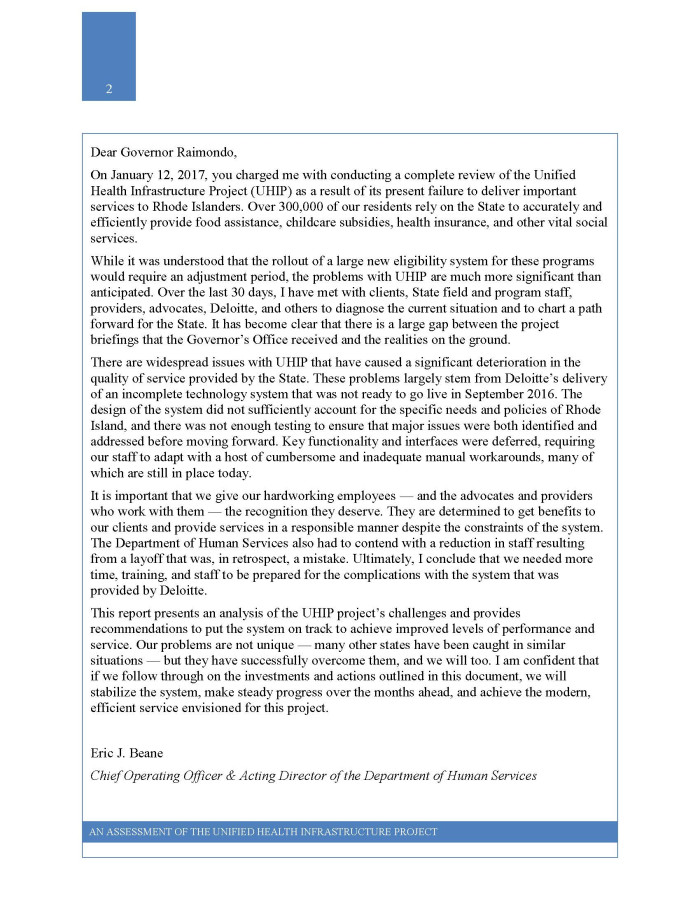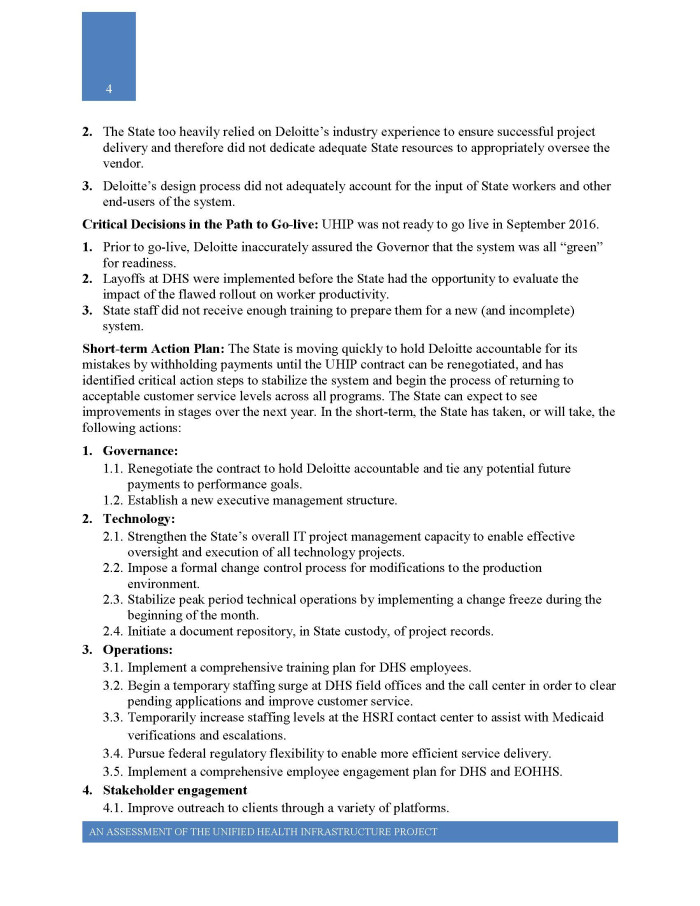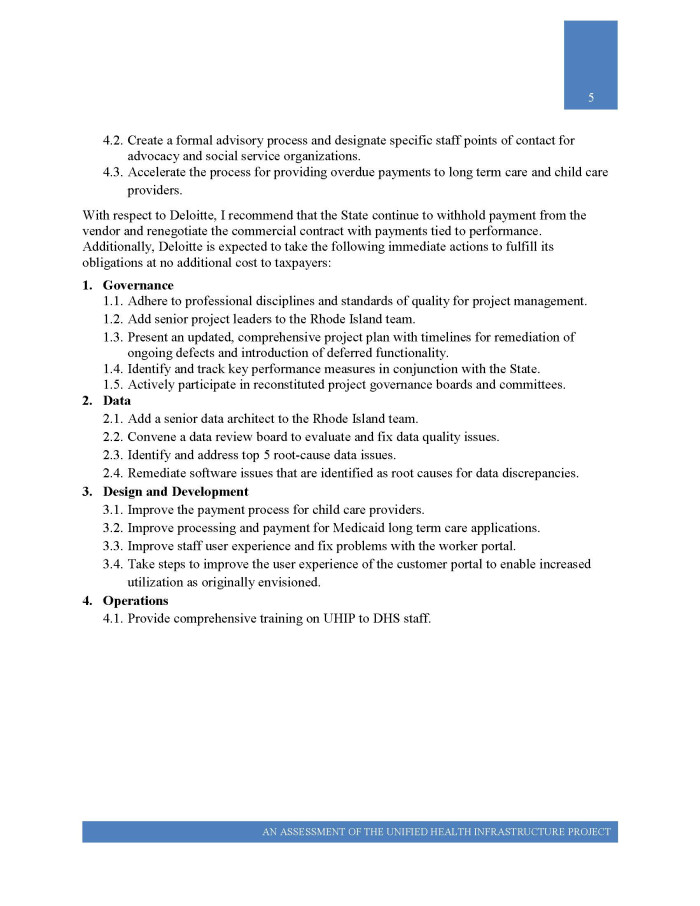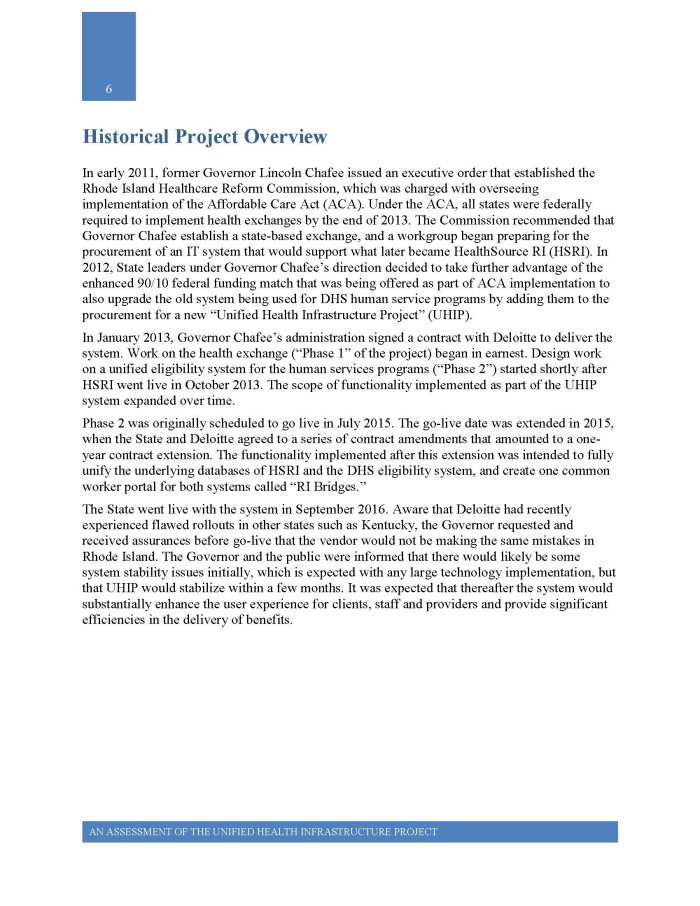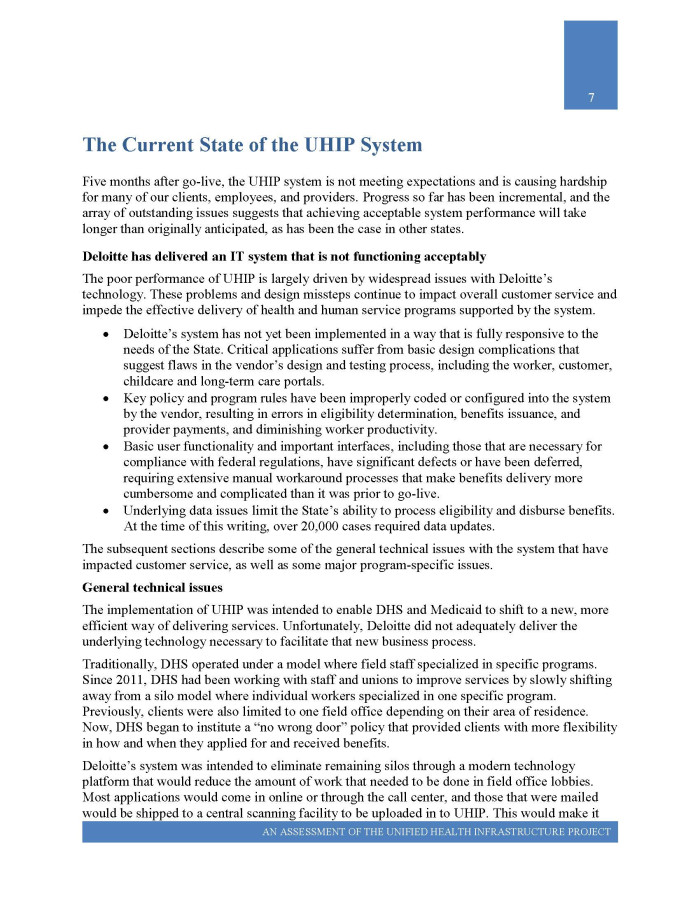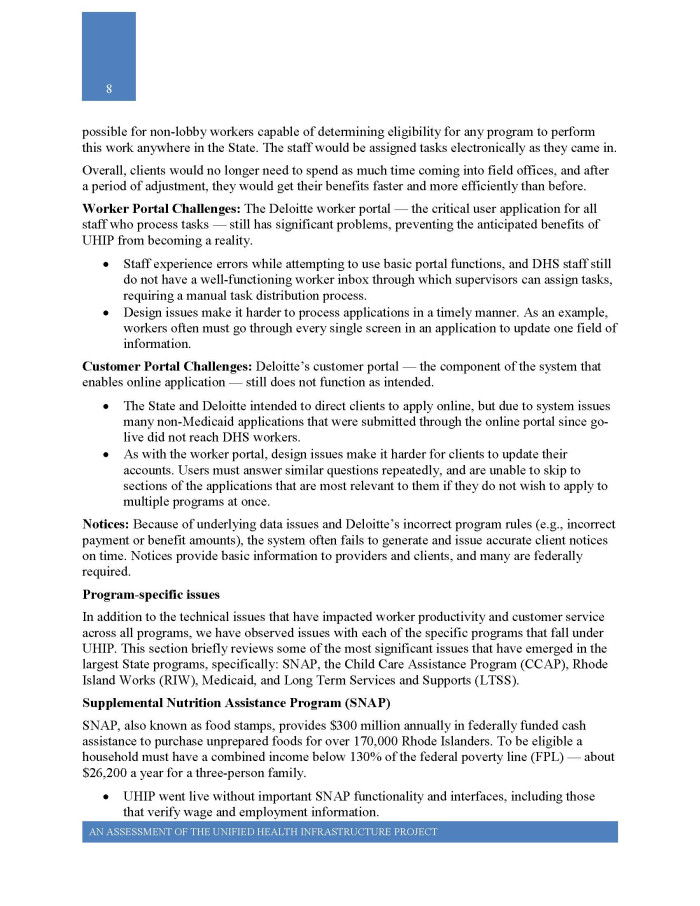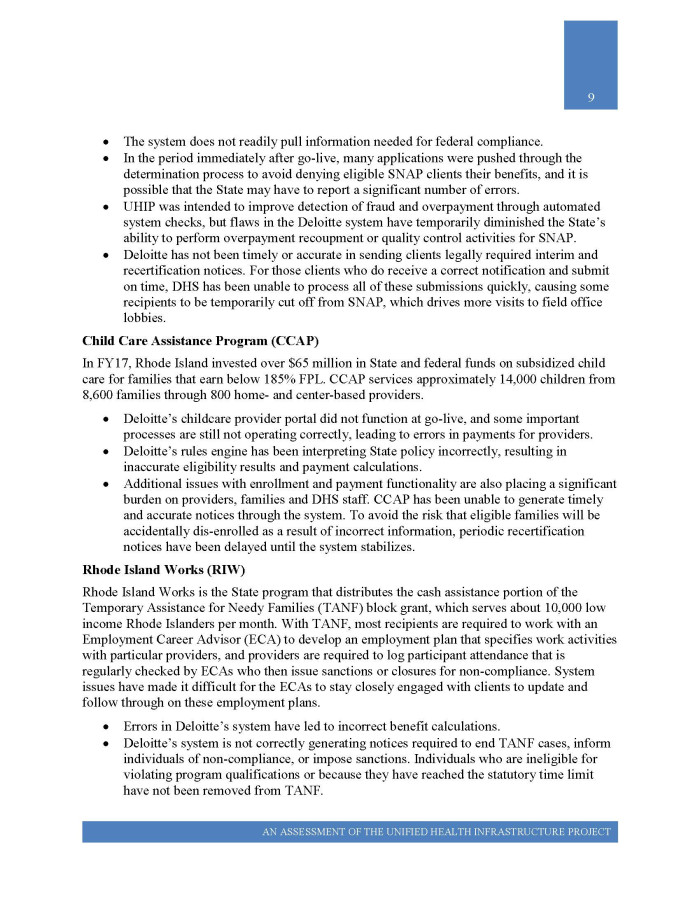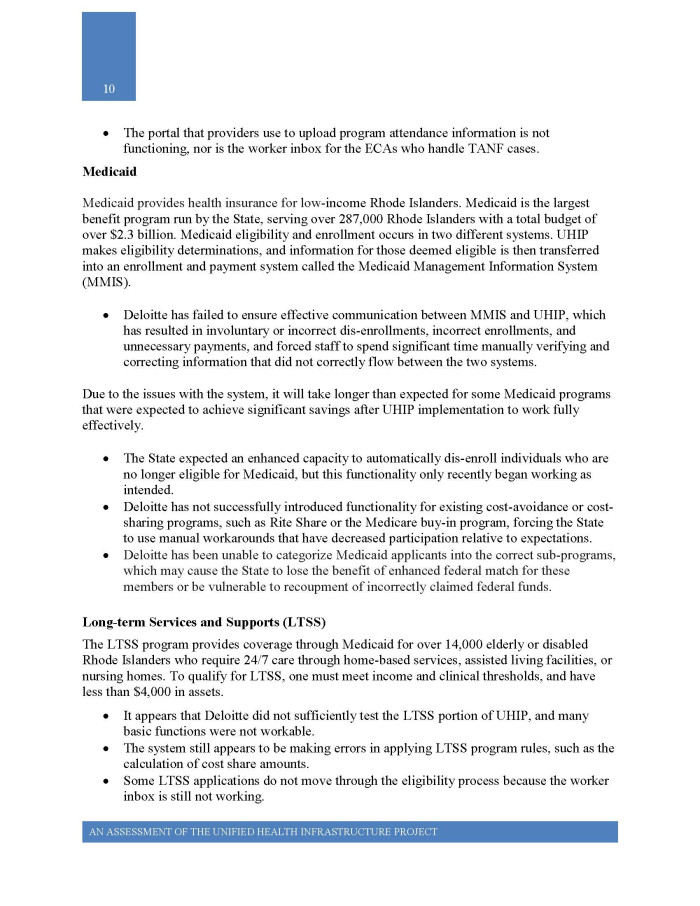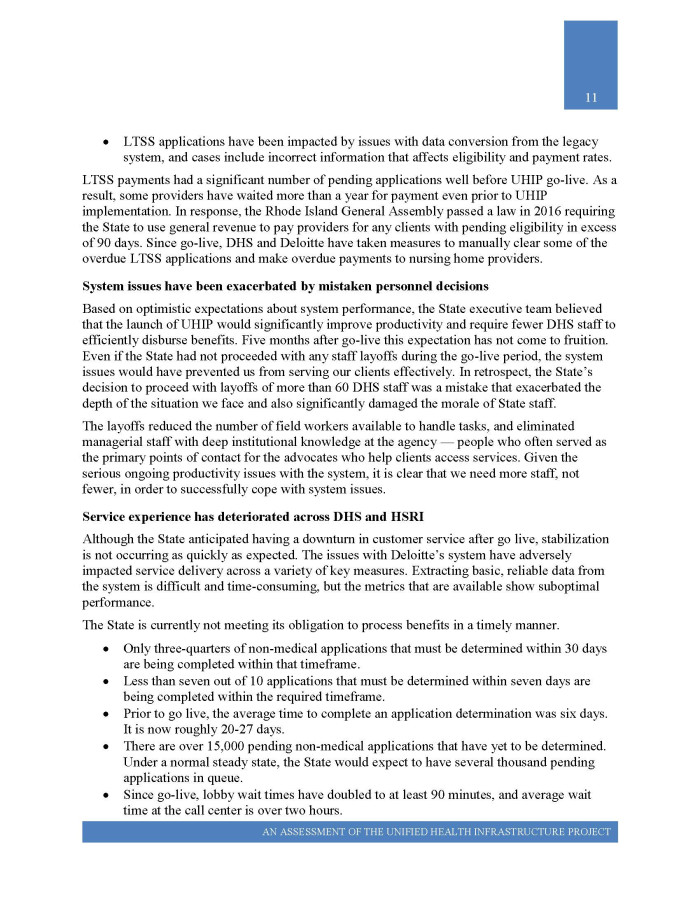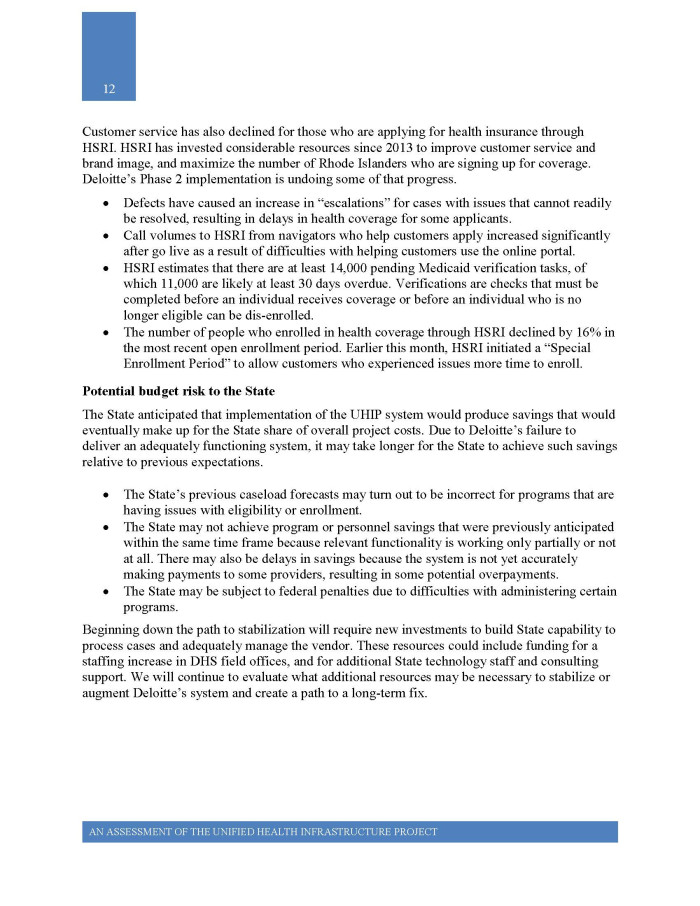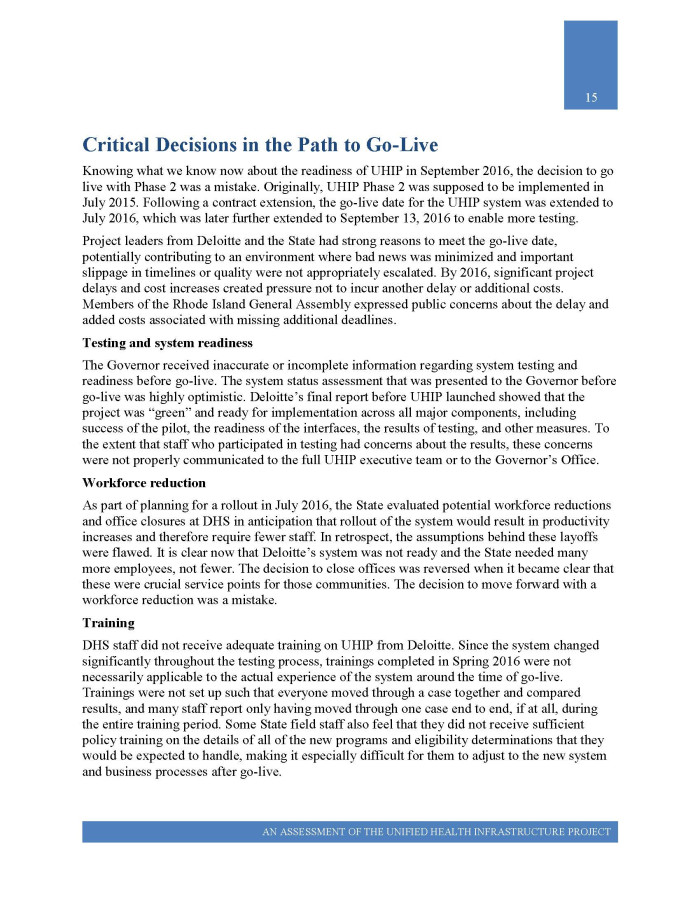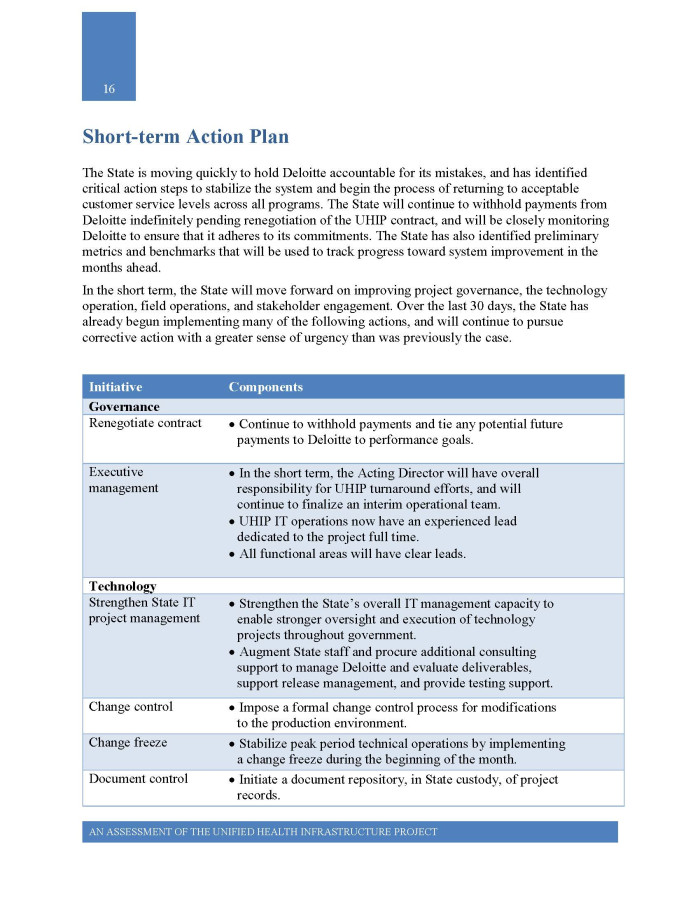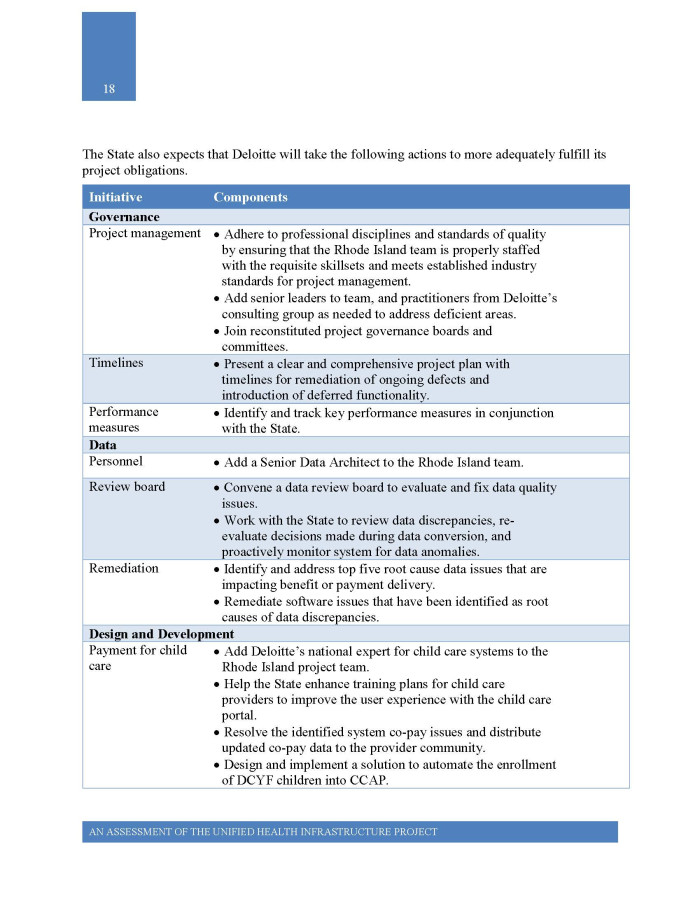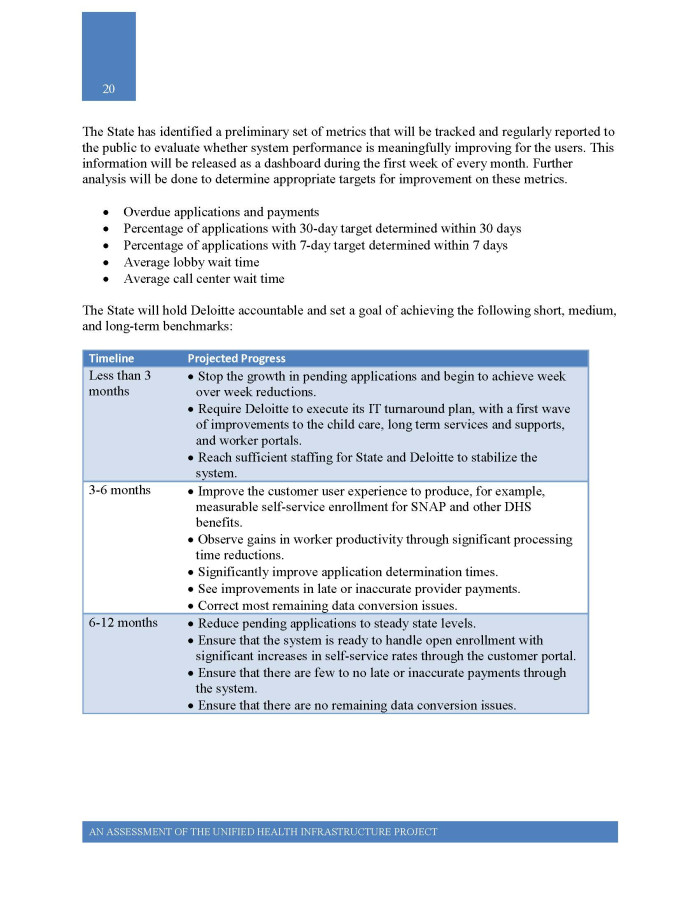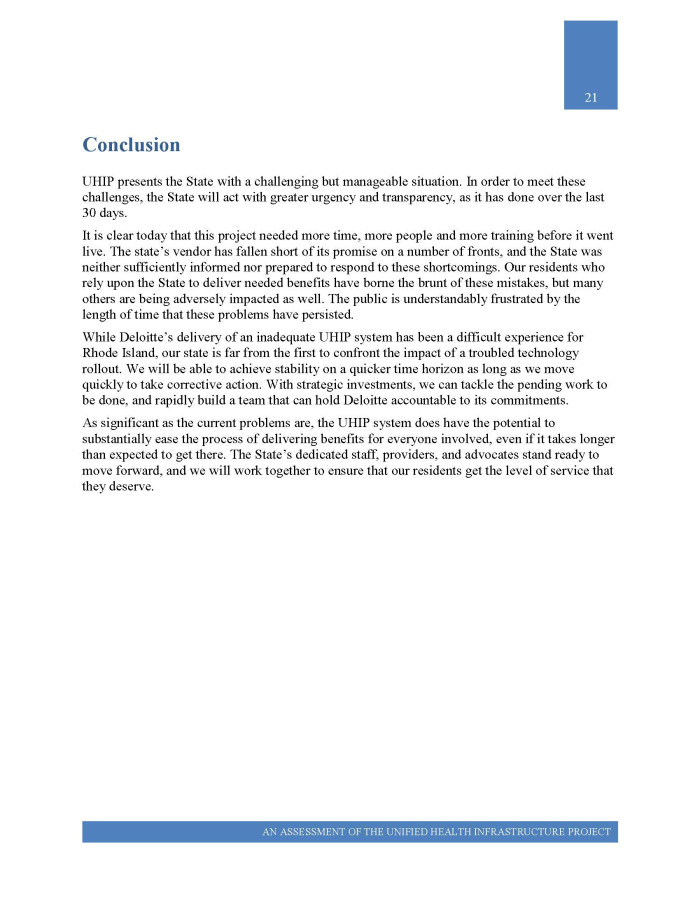Settlement Reached in Lawsuit Over Food Stamp Benefit Delays Caused by UHIP
Sunday, February 26, 2017
The ACLU of RI, as well as, the National Center for Law and Economic Justice (NCLEJ) announced a settlement has been signed with the state in the federal lawsuit the two groups filed in December over the failure of the Department of Human Services to provide timely SNAP food stamp benefits to families in need.
“This settlement agreement is a major step in addressing the fallout from the UHIP fiasco. We are hopeful that as the state works to correct the UHIP system to deal with SNAP applicants in accordance with the settlement agreement, it will have a positive impact on other UHIP programs as well. In the meantime, we will continue to examine the complaints we receive about these other programs in case additional action is necessary," said ACLU of RI executive director Steven Brown.
CLICK HERE TO READ THE SETTLEMENT
GET THE LATEST BREAKING NEWS HERE -- SIGN UP FOR GOLOCAL FREE DAILY EBLASTWhen the suit was filed in December, the ACLU and NCLEJ argued that the “systematically inadequate and faulty statewide implementation” of UHIP was causing “thousands of households to suffer the imminent risk of ongoing hunger as a result of being denied desperately needed assistance to help them feed their families.” The two named plaintiffs, representative of thousands of others, faced multiple delays in getting their food stamps.
The settlement was reached with the assistance of U.S. District Court Chief Judge William Smith and is subject to the Court’s approval.
Terms of the Settlement
The terms of the detailed 14-page settlement agreement include the following:
- The state acknowledges its federal obligations to provide SNAP benefits in a timely manner, which means processing regular food stamp applications within thirty days of the date of application, and providing expedited food stamps to destitute households within seven days.
- Deadlines are established for the state to meet the goal of processing applications in a timely manner. Starting with the month of April, the state must have an 80% timely processing rate for 7-day expedited applications and a 75% rate for 30-day regular applications. Those requirements increase each month until they must reach a 96% compliance rate for both types of applications by August.
- The agreement codifies an existing informal process allowing plaintiffs’ counsel to refer individual cases of non-compliance to the state. In those instances, the state must review and respond to expedited applications by the close of the next business day, and within three days for other applications.
- Within 30 days of court approval of the settlement, the state will be required to notify every person who has applied for SNAP benefits since August 2016 of the opportunity to seek retroactive benefits if DHS lost or did not timely process their prior application for benefits.
- In addition to individualized notifications, the state will be required to post information about this process online and notify social service and other agencies about it.
- The state will be required to submit detailed reports to plaintiffs’ counsel documenting that it is meeting the goals set for increased compliance with the federal reporting requirements.
- In order to insure the compliance rate continues to be met, the court will retain jurisdiction of the case for at least one year after the state first achieves the 96% compliance rate.
- The plaintiffs’ counsel will be entitled to their reasonable attorneys’ fees and costs.
READ THE UHIP ASSESSMENT REPORT IN THE SLIDESHOW BELOW
Related Slideshow: UHIP Assessment Report to Governor Raimondo
Related Articles
- ACLU Sues Rhode Island Over UHIP Food Stamp Delays
- Reps. Morgan, Quattrocchi Call UHIP Rollout Problems “Simply Unacceptable”
- Raimondo to Oust DePena, Guertin Over UHIP Debacle
- Raimondo Orders Expanded DHS Hours, Staff to Address Ongoing UHIP Problems
- Rep. Serpa Demands Raimondo Intervene in Botched UHIP Rollout
- RI Leaders’ Top Questions for Raimondo Administration on Botched UHIP Launch
- Biggest Questions Facing Raimondo Administration’s Botched $500M UHIP Rollout
- House UHIP Hearing Presses Roberts, DePena, DeBiase for Answers on Botched Launch
- Raimondo’s UHIP “Decisiveness” Four Months Too Late - Leaders Blame Gov & Roberts
- ACLU of RI Sets up Hotline for Food Stamp Complaints Related to UHIP
- Raimondo’s Interim HHS Boss to Resurrect UHIP Oversaw Failed VT Healthcare System
- Legislative Leaders Fire Back at Raimondo’s Claim They Pressured Her on UHIP Launch
- UHIP Failure Increases Demand at Rhode Island Community Food Bank
- Governor Raimondo On GoLocal LIVE and Talks UHIP, 38 Studios, and Free College Tuition
- Roberts Out, Wood Demoted — Report This Week Will Outline UHIP Mega-Problems
- House Oversight Committee to Hear UHIP Update During Thursday Meeting
- “I am Sorry” Says Raimondo About Failed UHIP Rollout
- Serpa Calls for Auditor General to Conduct Independent Review of UHIP



